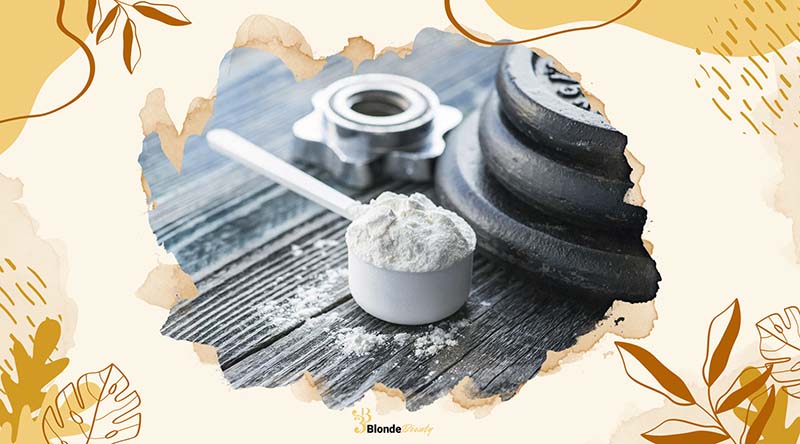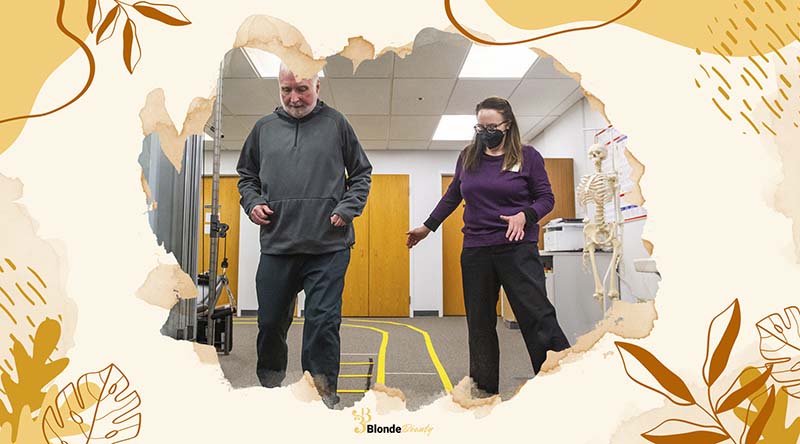Creatine is a popular supplement in the fitness world, well-known for helping to build muscles. But there’s more to it than just that.
It has benefits beyond the gym, including its impact on men’s sexual health. A question that often comes up is “Does creatine cause erectile dysfunction?”
Let’s take a closer look at how creatine actually works and its effects on sexual health.
You should also read the following articles:
- Does Tongkat Ali Increase Testosterone? Exploring Its Impact.
- Does Aloe Vera Increase Testosterone? Truth Exploration!.
- Does Magnesium Help with Testosterone? Effective or Not.
Can Creatine Cause Erectile Dysfunction?
Creatine monohydrate is celebrated in fitness and bodybuilding for enhancing performance and muscle growth. Amid claims and controversies, a pressing question is its impact on sexual health, specifically erectile dysfunction.
Science has proven it to be a myth. The truth is that creatine monohydrate does not cause erectile dysfunction. In fact, research has found evidence of the opposite: supplementation with creatine monohydrate may even have a beneficial effect on sexual health indirectly.

How Creatine Works in the Body?
Your body naturally produces creatine by utilizing amino acids such as glycine, arginine, and methionine. In fact, up to 80% of your body’s creatine stores can be replenished through a protein-rich diet or by taking a creatine monohydrate powder supplement.
Creatine combines with a phosphate group to form creatine phosphate, which is then stored in the muscles until it’s needed for energy production. This energy production process heavily relies on adenosine triphosphate (ATP), a molecule that powers almost every bodily function.
During this cycle, ATP loses a phosphate molecule each time it’s used for energy, converting into adenosine diphosphate (ADP). ADP essentially waits to be converted back into ATP. Creatine phosphate steps in by donating its phosphate group to facilitate this conversion, thereby aiding the body in producing more energy.
Other Benefits of Creatine
Creatine is not only pivotal in aiding those with Parkinson’s Disease but also plays a crucial role in enhancing muscle growth, showcasing its diverse range of health benefits.
Helps with Parkinson’s Disease
Parkinson’s disease is a condition characterized by a decrease in dopamine levels, a crucial neurotransmitter in the brain. This reduction leads to the death of brain cells and various debilitating symptoms such as tremors, muscle function loss, and speech impairments.
While studies in mice have shown promising results with creatine in preventing a significant drop in dopamine levels, the same effect hasn’t been reliably observed in humans.
Nonetheless, combining creatine with weight training has demonstrated benefits in improving strength and daily function in individuals with Parkinson’s, although some controlled studies didn’t find significant improvements in daily activities with creatine supplementation alone.

Speeds Muscles Growth
Creatine stands out as the most effective supplement endorsed by The International Society of Sports Nutrition for increasing muscle mass. Even a short-term usage of 5–7 days has been shown to notably enhance lean body weight and muscle size.
Initially, this increase is primarily due to heightened water content in muscles. However, over time, creatine facilitates muscle fiber growth by stimulating essential biological pathways and enhancing performance during workouts.
Studies have indicated that individuals incorporating creatine into their training regimen gain an average of 4.4 pounds (2 kg) more muscle mass compared to those who don’t use it. Long-term usage of creatine alongside training consistently demonstrates muscle mass gains.

Helps Muscle Cells Produce More Energy
Creatine supplements elevate the phosphocreatine levels in your muscles. Phosphocreatine plays a pivotal role in generating adenosine triphosphate (ATP), the primary energy molecule vital for all cellular functions.
During exercise, ATP is broken down to produce energy. However, the rate at which ATP is replenished limits your ability to sustain high-intensity activity.
By increasing phosphocreatine stores, creatine supplements enable your muscles to produce more ATP energy, thus enhancing your performance during intense workouts. This mechanism lies at the core of creatine’s performance-boosting effects.
Does Creatine Increase Sex Drive?
The connection between creatine supplementation and sexual performance has garnered attention within the fitness and sports community.
While scientific research directly examining the effects of creatine on sexual performance is limited, some studies have explored related factors. One hypothesis proposes that creatine supplementation may indirectly impact sexual function by facilitating muscle growth and enhancing overall physical fitness.
Increased muscle mass and strength can boost self-confidence and body image, thereby potentially improving sexual well-being.
Moreover, creatine’s potential involvement in hormone regulation, including testosterone, may influence aspects of sexual function such as libido and erectile function.

Creatine and Testosterone Levels
Several studies have investigated the potential link between creatine supplementation and testosterone levels.
Some research indicates that creatine supplementation may positively influence testosterone levels, which can indirectly impact erectile function.
According to these studies, the increase in muscle mass resulting from creatine intake can influence the body’s hormone levels, leading to a rise in testosterone. Elevated testosterone levels are frequently associated with enhanced sexual function and libido.
Can You Take Creatine and Testosterone Booster Together?
Combining creatine and testosterone boosters is generally considered safe. Creatine is renowned for enhancing physical performance and muscle growth, while testosterone boosters aid in maintaining optimal testosterone levels.
Together, they can yield benefits such as increased muscle mass, strength, energy levels, and improved exercise performance. Creatine’s indirect impact on testosterone levels occurs through the elevation of DHT (dihydrotestosterone), a testosterone derivative.
Studies have demonstrated that pairing creatine with testosterone replacement therapy (TRT) can effectively enhance androgen performance.
However, it’s crucial to seek advice from a healthcare professional before commencing any new supplement regimen, especially if undergoing medical treatment or taking medications, to avoid potential interactions.
Conclusion
In summary, creatine, known for boosting energy and muscle growth, also offers broader health benefits, including enhancing cognitive function and hormone regulation. This is particularly beneficial for men facing reduced testosterone levels, as creatine supplementation may help improve testosterone levels and aspects of sexual health, such as libido and erectile function.
Therefore, when questioning “Does creatine cause erectile dysfunction?”, it’s important to note that it might actually support sexual health and performance, offering a cost-effective and simple method for boosting testosterone compared to other treatments.
Visit other Blondebeauty articles to gain more health knowledge.

Laureate Professor Clare Collins
Professor Clare Collins is a leading expert in nutrition and dietetics at the School of Health Sciences, part of the College of Health, Medicine and Wellbeing. Her work is changing the way we think about food and health. She grew up as one of nine children and was the first in her family to finish high school and go to college. This background gave her a strong work ethic and a deep appreciation for seizing opportunities.
As the Director of the Hunter Medical Research Institute’s Food and Nutrition Program and a recipient of three NHMRC Research Fellowships, Professor Collins is making a big difference in public health. She focuses on helping people who are often overlooked, using new technologies like apps and online programs to improve their nutrition and reduce the risk of chronic diseases.
Professor Collins is well-respected and has been recognized as a Fellow in four major health and science organizations. She leads a diverse team of experts, including dietitians, computer scientists, and engineers, working together on global health projects.
Her achievements are impressive. She has received over $29 million in research funding, published more than 450 papers, and helped 35 PhD and Master’s students complete their degrees. She’s also active in sharing her knowledge with the public. She has developed tools like the Australian Eating Survey and the Healthy Eating Quiz, and she often appears in the media to talk about nutrition.
PUBLISHED ARTICLES
- Collins, C. (2019). “The Effect of a Pilot Dietary Intervention on Pain Outcomes in Patients Attending a Tertiary Pain Service.”
- Collins, C. (2022). “Variation in cardiovascular disease risk factors among older adults.”
- Collins, C. (2022). “Evaluation of an online intervention for improving stroke survivors’ health-related quality of life: A randomised controlled trial.”
These articles show Professor Collins’s commitment to understanding how better nutrition can improve health. Her work is important for researchers, doctors, and anyone interested in healthy living.
